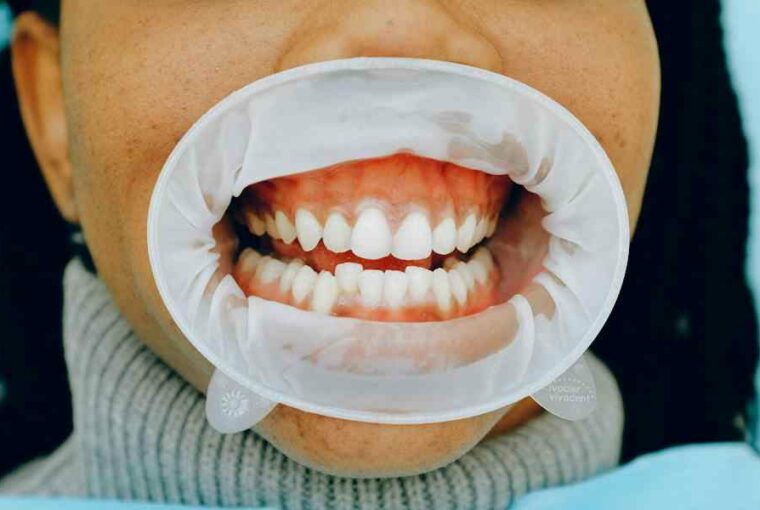Time, the ever-present universal sculptor, shapes the bodies and lives in its grand design. One primary example is the human teeth.
As years pass by, the body’s oral system changes, and understanding how certain age-related changes affect one’s health can lead to better and more appropriate oral healthcare at certain stages of waking life.
Continue reading below to learn more about the relationship between teeth and aging, as well as how oral health changes over the span of an individual’s life.
Teeth’ Enamel Erodes Over Time
Although teeth are considered one of the most resilient and sturdiest parts of the body, they can deteriorate and lose their strength over time.
Enamel, the primary material found in teeth, is well-known for its strength. Nonetheless, constant food chewing, grinding, and consumption of sugary treats can damage the enamel found on the teeth’ top surface. Add to that with the passage of time, enamel tends to weaken as a person ages. This vulnerability leaves teeth susceptible to cavities as they age, particularly at the root surfaces where receding gums offer little protection.
Luckily, losing teeth as one ages can be handled with dental treatments such as all on 4 Australia.
Gum Woes Flare Up As The Years Pass By
Gum disease, generally characterized by inflammation and bleeding, isn’t just a concern for teenagers navigating hormonal ups and downs. As humans age, the chances of getting gum diseases are said to increase significantly.
Contributing factors to the higher probability of gum illnesses at later ages include hormonal shifts, a decrease in saliva production, and even certain medications. If it’s left untreated, gum disease can lead to tooth loss and the like.
The Mouth Becomes Drier As One Age
Saliva plays a crucial role in oral wellbeing. It’s used to wash away leftover food particles stuck between teeth, gums, and so on. In addition, the liquid is also helpful in neutralizing harmful bacteria found in the mouth.
The salivary glands are the primary organs responsible for the production of saliva. Nonetheless, they lose their capability to produce the important liquid with the passage of time. This leads to a condition known as dry mouth.
Having a dry mouth allows deadly bacteria to form breeding grounds in the mouth, increasing the risk of cavities and gum disease. Not only that but dry mouth can make dentures uncomfortable and weaken taste perception.
The Oral Health And Wellbeing Connection: How One’s Dental Status Affects The Body And So On
Many scientific research papers published throughout the years have unveiled a fascinating truth: one’s oral health is intricately linked to one’s overall wellbeing.
Multiple studies have reported a strong correlation between poor oral health and chronic conditions like heart disease, diabetes, and even Alzheimer’s disease. This emphasizes the importance of maintaining good oral hygiene for the sake of the whole body’s wellbeing at any given stage of life.
Embracing The Passage Of Time: Changing Oral Health Practices Is Key
While the passage of time brings changes, it doesn’t have to spell doom for your oral health. Here are some key strategies to keep your smile healthy at varying stages of your waking life:
- Consistent brushing and cleaning are the cornerstones of healthy teeth. Use a soft-bristled toothbrush and fluoride toothpaste, brushing for two minutes twice daily. Don’t forget to floss once a day to reach spaces a toothbrush can’t reach. Consider an electric toothbrush for improved plaque removal, making this daily ritual more efficient.
- Regular checkups, ideally every six months or as recommended by your dentist, allow for early detection and treatment of potential dental problems, preventing minor issues from snowballing into bigger ones.
- Staying hydrated by sipping water throughout the day is crucial. In addition, sugar-free lozenges or gum can stimulate saliva production, offering temporary relief. If discomfort persists, talk to your dentist about prescription medications or specialized mouthwashes.
- Limit sugary and acidic foods because they’re known for eroding enamel and fueling cavity-causing bacteria. Embrace a diet rich in fruits, vegetables, and calcium-rich foods like dairy products to strengthen your teeth.
- For those wearing dentures, proper care is crucial to prevent gum irritation, infection, and bone loss. Daily cleaning with a denture brush and specialized cleansers is essential. Regular visits to your dentist ensure proper fit and adjustments to maintain comfort and oral health.
- Certain medications can have side effects that impact oral health, such as dry mouth or increased risk of thrush. Discussing these concerns with your physician and dentist allows for proactive measures to mitigate these risks and ensure your oral health regimen aligns with your overall medication plan.
Additional Oral Health Tips To Know About
Check out the additional dental health tips below concerning individuals of advanced age, those who are dealing with certain illnesses, and so on:
- For seniors with limited dexterity and mobility, consider using larger-handled toothbrushes and floss holders. Electric toothbrushes with grip enhancements can also be helpful.
- For diabetics, keeping blood sugar levels in check is crucial for preventing gum disease, a common complication of diabetes.
- For those who have braces, oral implants, and other dental instruments, using oral irrigators can be helpful in keeping a clean mouth. These water flossers can effectively remove plaque and debris that remains after flossing.
- For those who can’t personally visit their dentist, teledentistry allows for virtual consultations wherein diagnosis and treatment can be administered remotely. This is particularly useful for geriatric patients.
In Conclusion
Remember, oral health is a journey, not a fixed destination. By understanding the changes that occur with age, embracing personalized care strategies, and utilizing advancements in technology, you’ll get to enjoy a healthy and vibrant-looking smile at any given stage of your life.




